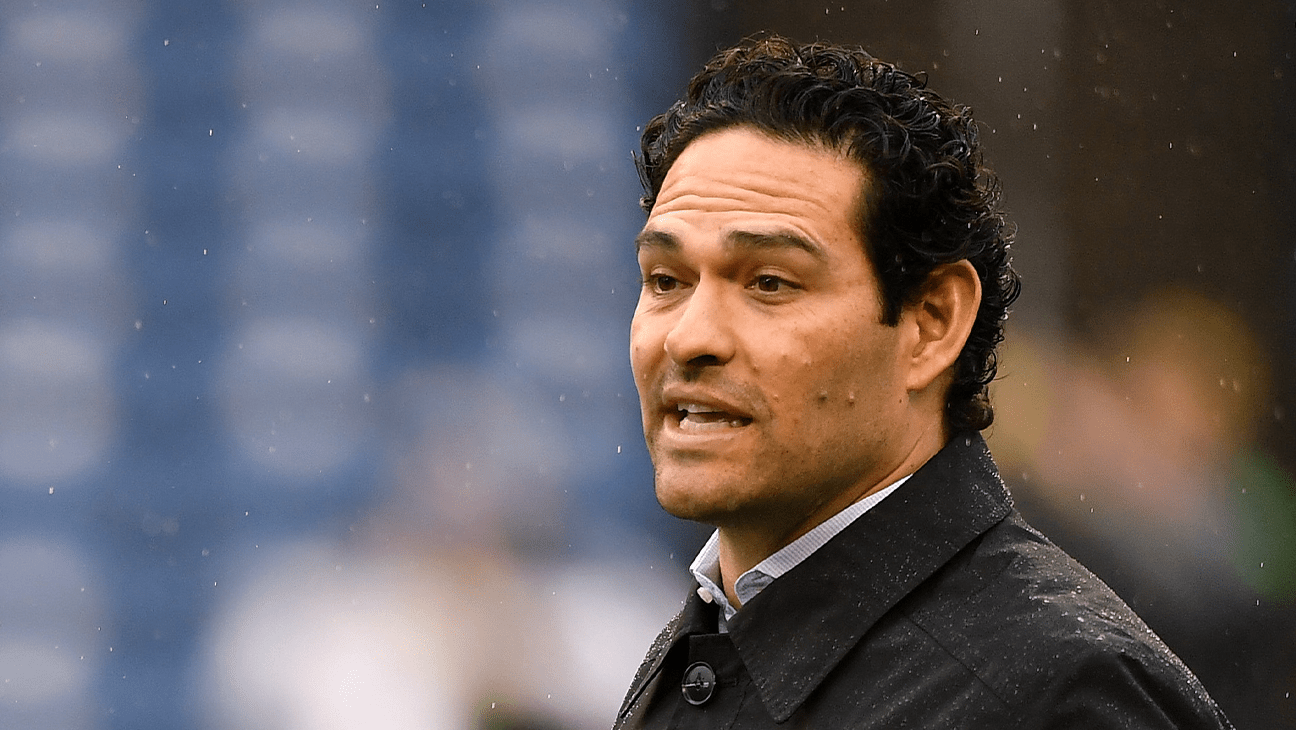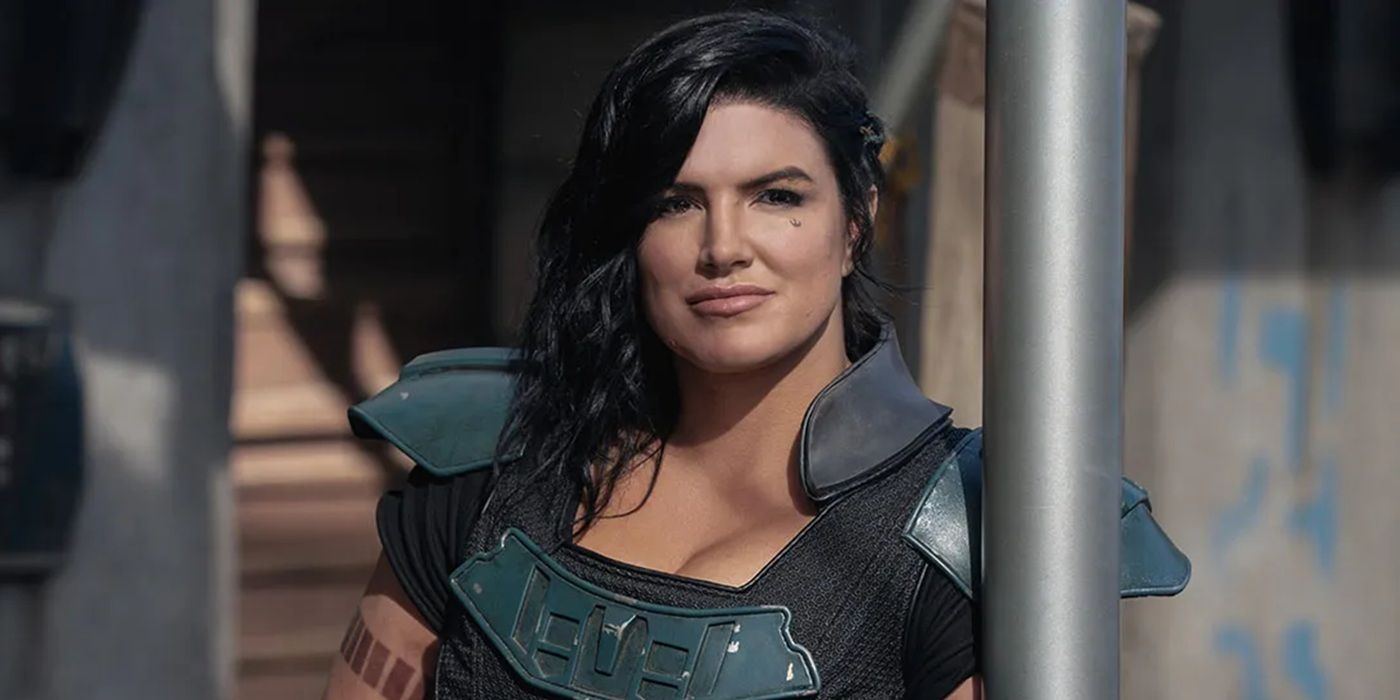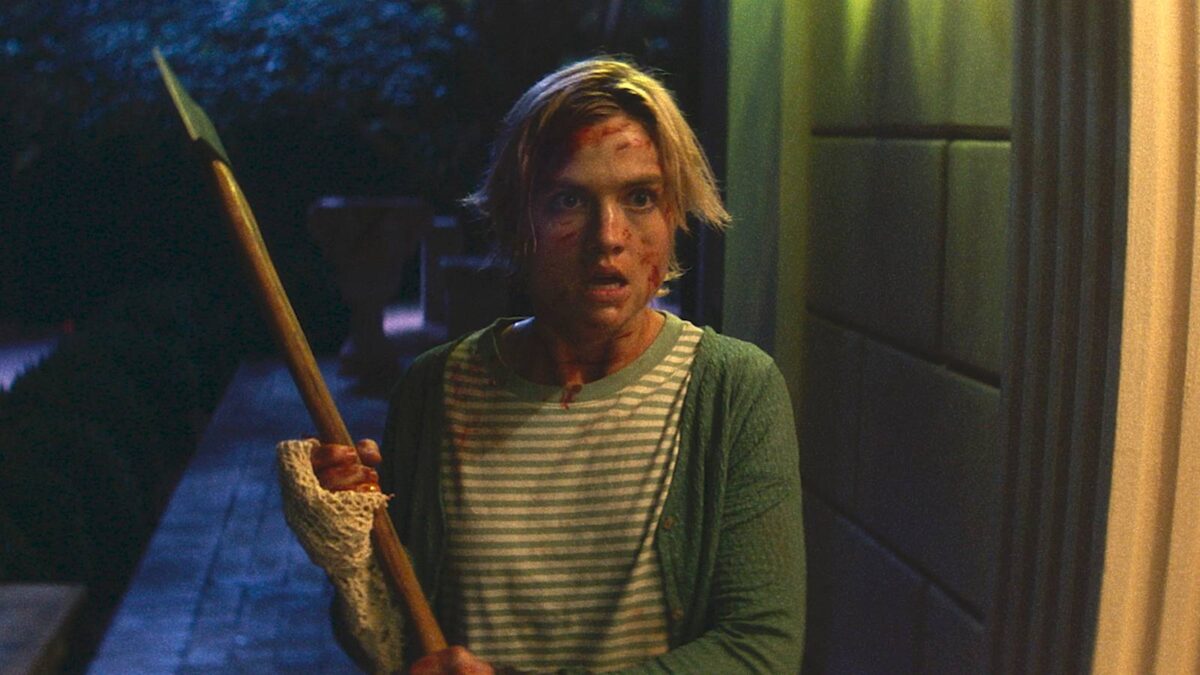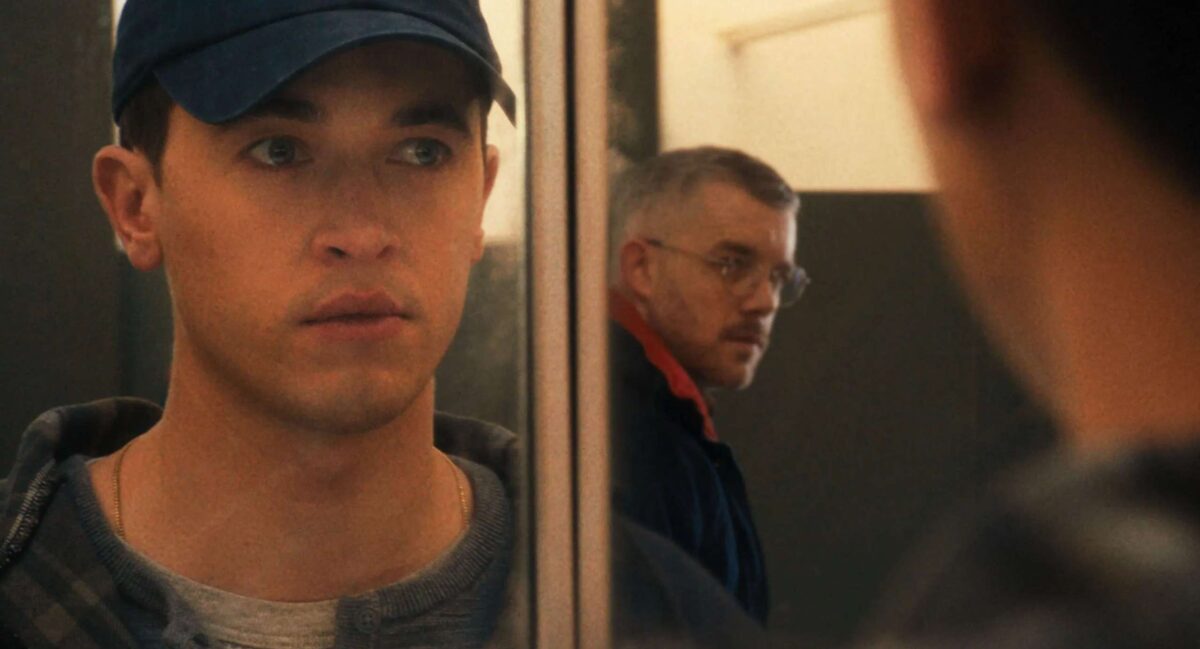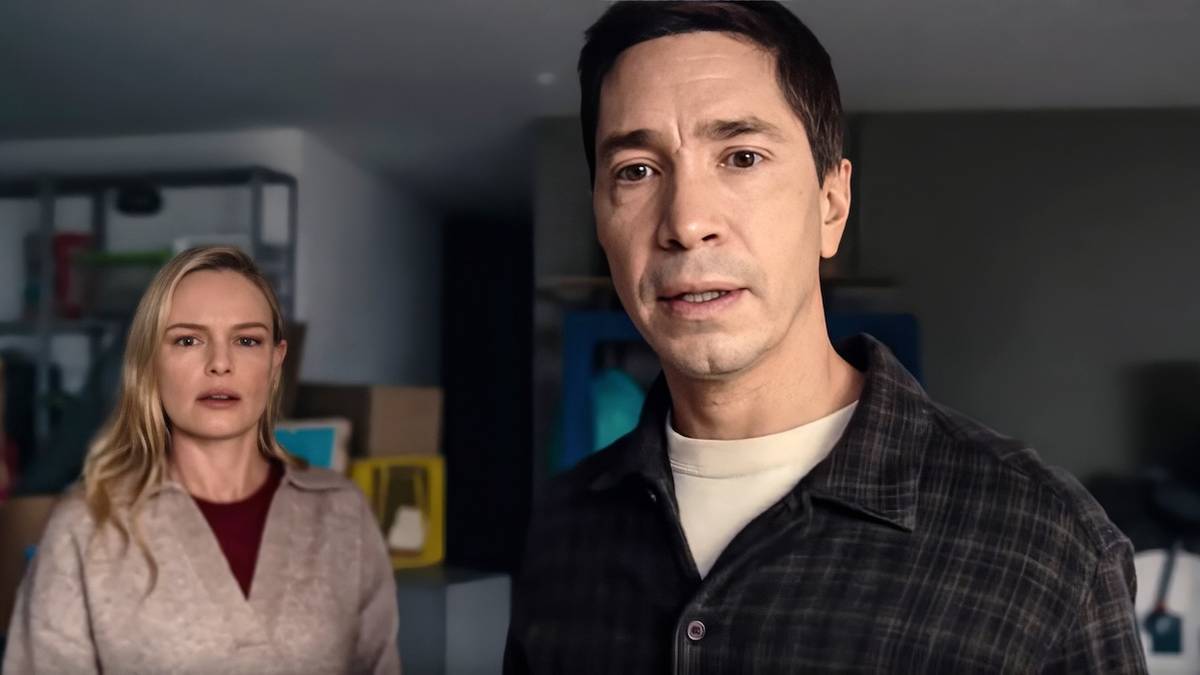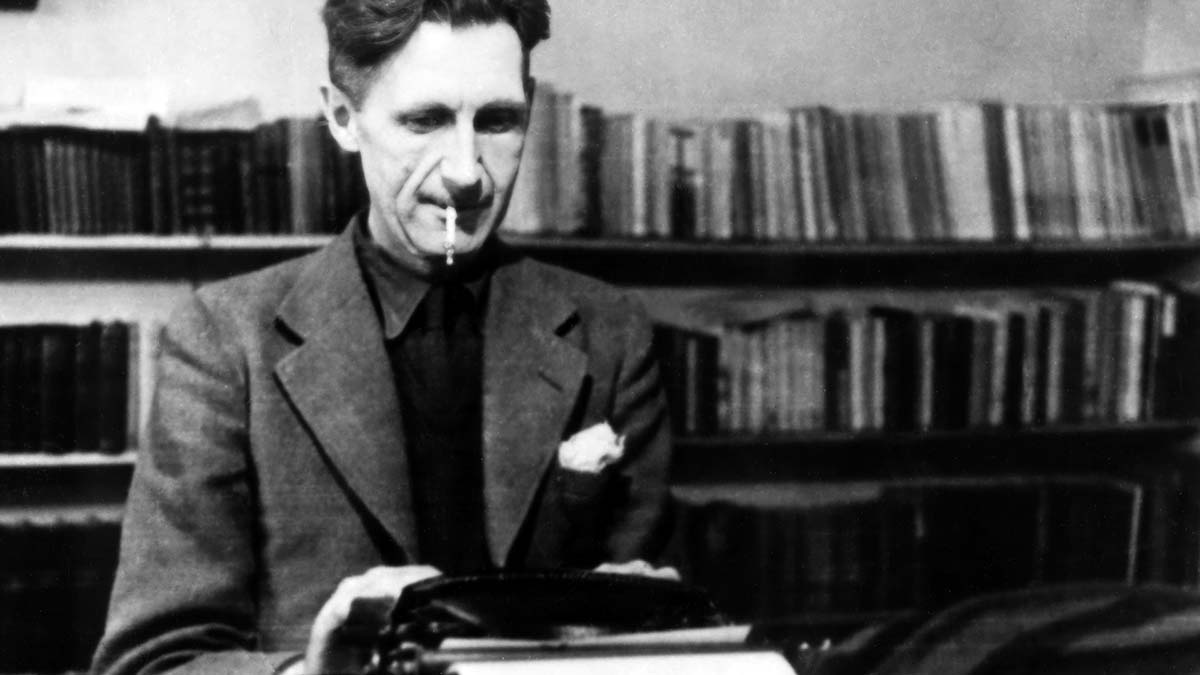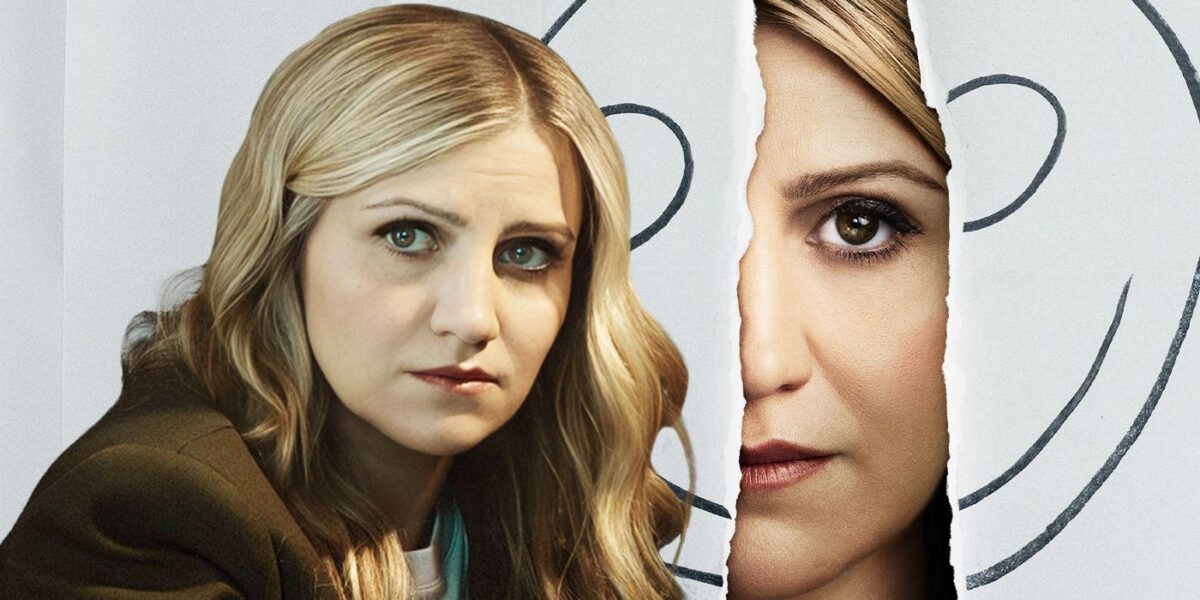
’Happy Face’s Annaleigh Ashford on Playing the Real-Life Daughter of a Serial Killer
Apr 29, 2025
[Editor’s note: The following contains some spoilers for Happy Face.]
Summary
The Paramount+ TV series ‘Happy Face’ is inspired by Melissa Moore’s real-life story as she grapples with her father’s true identity.
The true crime drama delves into complex family dynamics, retribution, trauma, and empathy.
Portrayal of the father-daughter relationship sheds light on inner struggles and forgiveness.
Inspired by the true-life story of Melissa Moore, the Paramount+ series Happy Face tells the story of what happens when you’re already living with the knowledge that your father (Dennis Quaid) was the prolific serial killer known as Happy Face and he decides to make the admission of a crime previously unconnected to him to reel you back into his life. Melissa Reed (Annaleigh Ashford) finds herself in the position of trying to reconcile who she believed her dad to be with who he really is, come to terms with the impact he had on his victims’ families, and explain it all to her own 15-year-old daughter, who’s the same age that she was when she first found out.
During this one-on-one interview with Collider, Ashford discussed exploring the defining moments of Melissa Reed’s life, how you learn to live with a wrong you can’t make right, how a father who’s a serial killer complicates an already complex family dynamic, the way a family secret can alter a mother-daughter relationship, the abortion storyline, and whether you can ever really move on from something so traumatic.
‘Happy Face’ Is About Not Letting Yourself Be Defined by Your Trauma
“It is a cloud that hangs over her and will forever.”
Collider: When you build a character, I would imagine you typically think about their past and where they came from to try to get more of an understanding of who they are, and you maybe think about their parents and their family. How different is it to think about that in the context of playing a woman whose father is a serial killer? Does something like that hang like a cloud over everything, as we see how it affects her, everyone in her life, and everyone that she works with?
ANNALEIGH ASHFORD: I would say that anytime you play a character, you have to figure out the defining moments of their life and what made them who they are. For this character, unfortunately, it was this terrible act of violence that her father committed. Her life is everything before that happened and everything after. What was most interesting to play, as an actor, was the constant inner struggle that this woman has to navigate. When you asked, is it a cloud over her life? Absolutely, it is a cloud that hangs over her and will forever. What is interesting is how, in coming out with this secret and making it public, she’s able to reconcile who she is, what she came from, and who she wants to be. What’s most interesting to me about the real Melissa is that she has used this terrible trauma, this wrong that she can never make right, to be an advocate for people in the space of true crime.
Related
‘Happy Face’ Review: Paramount+’s True Crime Drama Is a Rocky Examination of Serial Killer Obsession
‘Happy Face,’ starring Annaleigh Ashford and Dennis Quaid, premieres March 20.
It’s such an interesting take on this kind of story because the main crime itself has already been solved. We already know he’s the Happy Face killer and he’s being punished. But then, this new revelation comes up, which is what sets off this whole new mystery. How did you feel about that aspect of this, getting to explore that father-daughter relationship with the full knowledge of who he is and what he’s done, instead of having that be the discovery?
ASHFORD: I would often put myself in her shoes. What would it feel like to have a family member, whether it be a parent or a spouse or sibling or a child, commit a heinous crime? What would you do with the love that you have for the person before they committed that act? You can’t extinguish the memory of somebody you love, or the memories of good times you had with them before they did this terrible thing. That was a really uncomfortable, complicated thread of her character that was interesting to play. Talk about conflict. That is a constant conflict. I found that to be a gift, as an actor, and it also made me heartbroken for the people who are real in this story. One thing that’s really unique about our story is that, when you talk about this crime that Keith claimed, a lot of serial killers in real life claim crimes, and sometimes they’re real and sometimes they’re not. It revictimizes and retraumatizes not only the victims, but the victims’ families. That is something that we learned from Melissa. These true-crime shows retraumatize victims and the victims’ families, so that’s something we really wanted to be careful of. Melissa’s story in our show is real. Everything you hear and see about Melissa is real. But the crime in our show is fictionalized because we really wanted to respect the real victims of Keith Jesperson’s crimes.
We know that Melissa was 15 when her father was caught, and now her own daughter is that age and learning all about this, herself. What was it like to explore that mother-daughter relationship and to find that with your young co-star, Khiyla Aynne?
ASHFORD: I love playing moms. I’m a mom of two, myself. I think the parental-child relationship is always so unique and complicated, depending on whatever’s happening. It was a really nice contrast to play a loving parent with my child, who respects me and trusts me. What does that look like, compared to the relationship that I play with my parent on the show, who I’m afraid of, who I’m disgusted by, who I resent, but also who I have memories of loving? That is so uncomfortable and complicated. He’s extremely manipulative, and I know that, but I will still forever be manipulated by the memory of loving him and needing him as my father.
When Your Father Is the ‘Happy Face’ Killer, the Manipulation Never Ends
“It’s in line with the way that a lot of people who are in prison for crimes like this navigate their time.”
Image via Paramount+
The abortion story in episode four and the ultimate reveal that it was actually her father that put it out there made me go through so many emotions. It made me heartbroken for her, and I was also angry on her behalf. And then, there’s that moment when he’s actually proud because he feels like that makes her a killer like him. What was your reaction to reading all of that for the first time and what was that like to shoot?
ASHFORD: I thought it was great writing. Unfortunately, it’s in line with the way that a lot of people who are in prison for crimes like this navigate their time. They continually try to manipulate people on the outside, and people that they love on the outside. The abortion is a real thing from her real life. The rape is a real thing from her real life. Through this writing and through this plot twist, I thought it was a really uncomfortable way to navigate what it would feel like to carry that. I remember saying the lines to Dennis Quaid’s character, “What you did to those women, the way you raped those women, that happened to me. What does that feel like? You can have empathy for me, but you can’t have empathy for these women? What is wrong with you?” In real life, one of the things that I think is so special about Melissa Moore is that she is abounding with empathy. She has so much empathy. That is the thing that is so different for her. Her dad has none, and she has it all.
Related
The Disturbing True Story Behind Dennis Quaid’s ‘Happy Face’
Melissa Moore, the daughter of serial killer Keith Jesperson, serves as an executive producer.
Another moment that really stood out for me is when Melissa goes back to see Ash. He first shows up at her house, which is so scary because of her own family. And then, she goes back to see him to say that she’s sorry. When he gets in your face, you can sense his anger, but more than that, you can really sense his pain. What was that scene like to do?
ASHFORD: That was also pulled from Melissa’s real life and real experience. We had a great actor. Teach [Grant] was incredible. That need to ask for forgiveness for an act of violence that she did not commit, but because it was somebody so close to her in her life, she feels the responsibility, the guilt, and the shame, and she felt the need to apologize. She could never, ever right that wrong, but what she can do is offer empathy and condolence, which is really uncomfortable and painful. I thought that was a really important thread of her narrative, and that was a part of her real life. I thought it was beautifully written.
‘Happy Face’s Annaleigh Ashford Worked to Understand Reconciling the Good Memories Spent With Someone Who’s Done Terrible Things
“What would you do if the person that took care of you and protected you and loved you was this person?”
Image via Paramount+
The moment when she says to her father, “I don’t understand you. I keep trying, but I never will,” feels like it encompasses their entire relationship. What do you think it is that just kept her from not letting go of that? And then, what do you think it was in her that finally allowed her to let go of that?
ASHFORD: When I was working on this part of the show, I always tried to imagine how she could have felt like this. What would you do if the person that took care of you and protected you and loved you was this person? There is a bond that you have with your parents that is unshakable. You can never, ever let go of it. And so, no matter what they do, it will always be in your core memories as a child. How do you navigate that for the rest of your life? How do you reconcile that? That is the conflict and the inner struggle that I think is so interesting to play as an actor and so interesting to watch as an audience member. That was something I had to continue to navigate with the character. She just keeps asking the question, and so do we as the audience. It really makes you question what you would do. What would you do if somebody close to you did something like that?
22:02
Related
For Dennis Quaid, It Was “Surprisingly Easy” To Play a Serial Killer in ‘Happy Face’
Annaleigh Ashford, Quaid, Tamera Tomokili and James Wolk talk about why true crime appeals to the masses and more.
Happy Face
Release Date
2025 – 2025-00-00
Network
Paramount+
Directors
Michael Showalter
Happy Face is available to stream on Paramount+. Check out the trailer:
Publisher: Source link
Erotic Horror Is Long On Innuendo, Short On Climax As It Fails To Deliver On A Promising Premise
Picture this: you splurge on a stunning estate on AirBnB for a romantic weekend with your long-time partner, only for another couple to show up having done the same, on a different app. With the hosts not responding to messages…
Oct 8, 2025
Desire, Duty, and Deception Collide
Carmen Emmi’s Plainclothes is an evocative, bruising romantic thriller that takes place in the shadowy underbelly of 1990s New York, where personal identity collides with institutional control. More than just a story about police work, the film is a taut…
Oct 8, 2025
Real-Life Couple Justin Long and Kate Bosworth Have Tons of Fun in a Creature Feature That Plays It Too Safe
In 2022, Justin Long and Kate Bosworth teamed up for the horror comedy House of Darkness. A year later, the actors got married and are now parents, so it's fun to see them working together again for another outing in…
Oct 6, 2025
Raoul Peck’s Everything Bagel Documentary Puts Too Much In the Author’s Mouth [TIFF]
Everyone has their own George Orwell and tends to think everyone else gets him wrong. As such, making a sprawling quasi-biographical documentary like “Orwell: 2+2=5” is a brave effort bound to exasperate people across the political spectrum. Even so, Raoul…
Oct 6, 2025
